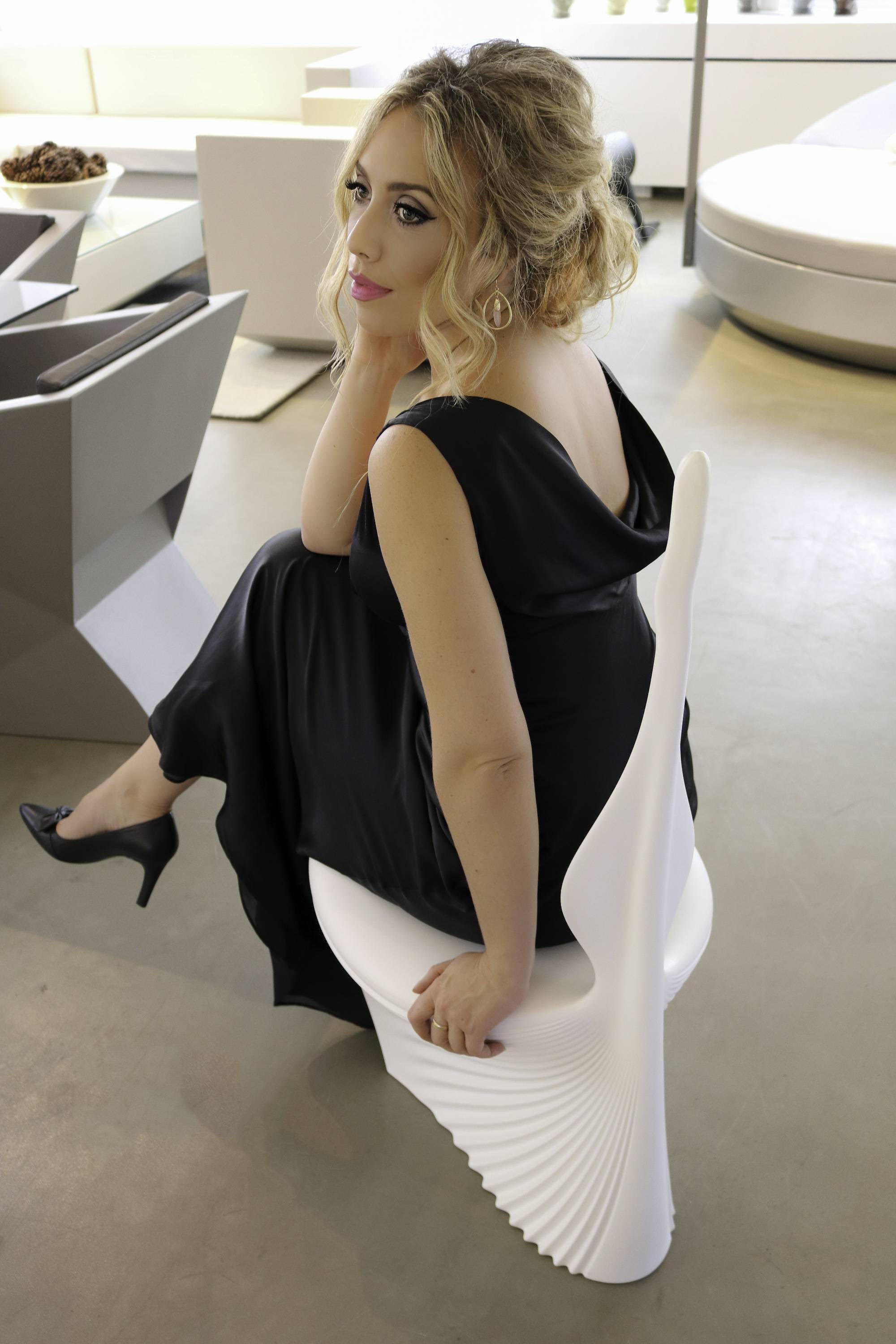
Marina Costa-Jackson: "You just have to do it, a lot."
InterviewOn singing, stage fright, her sisters, and the pandemic
“I sing because I love the music. I’m not the typical diva because I’ve had to work through some hard-core stage fright. That was the reason I didn’t sing up until I was 21 years old. I was raised in a family with sisters who sang as well, Ginger Costa-Jackson and Miriam Costa-Jackson, and they always wanted me to sing. I loved the music and I loved hearing them practice and work hard towards singing and opera.
“But stage fright was always the reason why I didn’t sing. It’s been that love of the music that’s driven me forward and given me a career. But I’ve had to work through lots of performance anxiety. You could say I love one aspect and hate the other but the music makes it all worth it.
“What helped me get over stage fright is consistent exposure to performing with nerves. Your body chemistry is completely different when you’re nervous, with that adrenaline pumping and the cortisol levels. The Academy of Vocal Arts gave me so many opportunities to sing - patron events, weekend concerts, school performances and operas. I was put through the ringer, constantly stressed out about having to sing but that’s really the only way. You have to just do it, a lot.

“My mom’s from Palermo, Italy, and my dad is from the States. He was in barbershop quartet. In college he loved musicals. We got all the great American musicals from my dad and from my mom’s side, we got all the Italian tunes as well as opera. My dad loves opera as well. That combo meant I was raised with music.
“Miriam, the youngest sister is the coloratura soprano. She started singing when she was 11 years old and somehow had this voice that was automatically already in opera placement. She would listen to the whole I Puritani. She started off the family by getting more intensely into opera. Ginger joined about a year later and she took off immediately. She got into the Lindemann Young Artist program and things picked up for her very quickly. Ginger introduced me to her voice teacher, Bill Schumann, and he saw that there was a talent there and helped foster it. Ginger paved the way as far as making connections with people who are mammoths in the business. Thanks to that, I was able to eventually get into the Academy of Vocal Arts, which really was a springboard for my career. That’s the reason I was able to sign with the same agents I have now. I was able to get exposed and learn from great teachers and coaches and become a professional.
“My sisters and I all have different voice types so we always say God took care of jealousy. The good thing is that all three of us have helped each other, even financially, to come up, get the voice lessons we needed and so on and so forth. Ginger paved the way. When I started winning competitions, I sent money to Miriam. My parents sacrificed every dime in order to get Ginger and all three of us to where we needed to be, technique wise and vocally, flying us here and there. We’ve learned from each other and we’ve aided each other. We talk about technique all the time. We’re all financially and emotionally invested in each other’s singing. My sister’s success is my success, mine is hers and so on and so forth.
“During the pandemic, a lot of artists out there went without work for a long time. There were lots of things cancelled or rescheduled. This Suor Angelica and Schicchi were rescheduled. COVID made the momentum drop. I was to make my Royal Opera debut, which is now coming in 2024. And also my Paris debut as Mimì. The pandemic stopped the ball rolling for everybody. It was a moment for all artists to rebuild. Sadly, for the ones that felt like it wasn’t financially stable enough, they’ve chosen a different path. I had a baby during that time so I was able as well to enjoy becoming a new mother. The pandemic made us all have to go back a few years and redo auditions and ask ourselves if this is something that we can plausibly continue to do. Thankfully I have been able to and I’m grateful for that, because without music, I think life is just not as good.”

On Suor Angelica and Gianni Schicchi at San Diego opera
“Puccini really captured the raw emotionality of a mother. He always wrote his ladies so well but specifically, with Suor Angelica, there’s a deep sorrow there that makes it very interesting to portray. Being a mother now, it gives me a new perspective on it. It connects on a deeper level. Frankly it’s a very hard aria to get through with dry eyes. It is not just a vocal challenge as far as a role goes but also needs acting chops. I really enjoy that. What helps me best in my character is just throwing myself into the character and not being Marina anymore, being Suor Angelica and focusing on that aspect of it - rather than how Marina is feeling in the moment, which is nervous probably.
“Puccini wrote this role of Suor Angelica perfectly. He wrote the grieving, the deep and utter sadness, and just how devout she is, and at the end, calling on the Madonna to forgive her for the mortal sin of taking her own life. Everything about the way he wrote it is spectacular. Musically, it portrays that eternal divine forgiveness so very well. If anyone there hasn’t seen it before, they’ll just absolutely fall in love with it and if they have, it’ll do pretty much what it probably does most of the times, which is to completely rip out your heart. It is so cathartic and the music has so much beauty.
“I enjoy debuting new roles. Last year. I debuted two other big Puccini operas, Tosca and Manon Lescaut. I was nervous for Tosca, but when I got done with it and moved on to Manon Lescaut, I realized Puccini is what my voice does really well. I’m not nervous to debut Suor Angelica. I’m in good hands with Puccini.
I listen to Renata Scotto singing Suor Angelica as an inspiration and a challenge. She colors it so well, and she’s Italian and also so wonderful at her art. My agent is Filippo Anselmi and his mother is Renata Scotto. Every phrase Renata Scotto sings has so much intention. As an Italian speaker myself, I listen to her and I’m inspired to be able to really give every word the value that Puccini and the librettist were trying for with each phrase. I also love the beauty of Renata Tebaldi’s tone in this role. She had such an angelic voice. Renata Tebaldi is always a go to for me as well.

“Gianni Schicchi is such a fun opera and it’s the perfect opera as an evening closer. It’s a great opportunity and a really nice way to mend the hearts of the audience after breaking them in Suor Angelica, to leave them with a smile rather than on a downer. . I’m not your typical Lauretta. Usually that’s more of a young ingenue role but we’re going to have fun with her. It might sound a little bit like Tosca but I can still play her sassy. It’s a role I’ve done before so it’ll just be fun to revisit her and sing “O mio babbino caro”, which is just beautiful. I feel like every soprano probably has to sing that aria.
“With a double bill like this, there is a moment when I go backstage and I try to recharge. I probably eat something. But just like what it does with the audience, I think it also does to an artist. It’s your opportunity to leave on a high note, to be able to kind of vomit all this beautiful emotion in that first opera and then be able to come back and say now life is still OK. It feels great to swap back into comedy. The way that Puccini wrote the comedy is just perfection. He and his music do all the work.”


Comments